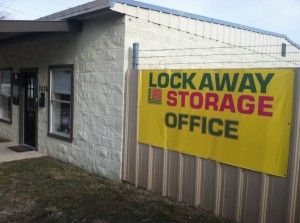Property rights score victory in Alameda County
by CalWatchdog Staff | May 29, 2013 9:38 am
 [1]May 29, 2013
[1]May 29, 2013
By Wayne Lusvardi
Chief Justice of the U.S. Supreme Court John Roberts[2] once observed that it was virtually impossible for any landowner to win a regulatory property takings case against local government. This was because the case that set the precedent in the law, called the Penn Central case[3], contains three tests that rarely appear in combination and are more difficult to prove.
However, on May 9, 2013 the California State Appeals Court rendered a decision in the case Lockaway Storage vs. County of Alameda[4]. The court affirmed the County was liable to pay a property owner damages for a temporary taking as a result of an “unreasonable” revoking of an approved land use permit.
A regulatory taking[5] refers to a situation where a government regulates a property by zoning or ordinances that effectively takes all rights to the property or value without formally condemning the physical property.
At issue was 8.45 acres of land in the unincorporated area of Alameda County. In 1999, the County granted the landowner a Conditional Use Permit for a ground storage yard for RV’s and boats.
In 2000, Michael Shaw and Michael Garrity, owners of Lockaway Storage, purchased the land for $800,000. The land was zoned agricultural. Lockaway assumed ownership of the land and the development rights when it bought the property.
Lockaway operates a number of different types of storage facilities in California, including vehicle and storage yards in Castro Valley, Fremont and Hemet.
Measure D
In November 2000, Alameda County voters approved a “slow growth” initiative called Measure D, the Urban Growth Boundary Initiative. It specified[6]:
“Shall an ordinance amending the Alameda County General Plan to, among other things, revise the urban growth boundary in the East County to reserve less land for urban growth and more land for agriculture and open space, apply similar policies to rural Castro Valley, require new housing to be located primarily within existing cities, modify land use restrictions applicable to rural area, and require a county-wide vote on changes to the policies, be adopted?”
The Sierra Club, Livermore-based Citizens for Balanced Growth, and many East Bay city officials supported Measure D[7], which killed plans for 12,500 housing units.
This measure prohibited the development of a storage facility on the Lockaway-owned property unless it was approved by a public vote. But Measure D contained a legal grandfathering provision of all existing approved development when the law became effective.
Lockaway continued to process its permit for an RV storage yard under the grandfather provision. But it was denied on the grounds Lockaway had not obtained a building permit and had not begun construction prior to the date of the initiative. Lockaway then pursued administrative and legal remedies to no favorable result.
Lockaway then filed suit in County Superior Court, seeking an order to proceed with development and suing for inverse condemnation and civil rights violations. Inverse condemnation[8] is when government indirectly takes all the rights and value from a private property but fails to pay compensation for it as required in the Fifth Amendment to the U.S. Constitution. The Superior Court found in favor of the property owners on all counts.
The Superior Court allowed development to proceed. The basis of the Court’s decision was that the County let Lockaway continue its development plans for 1-1/2 years after Measure D became effective. Then the County did what was called a “showstopping U-turn” and stopped the project. At that time the County refused to consider whether the “grandfather” clause in Measure D exempted the Lockaway Storage project.
Additionally, the lower court awarded the owner $504,175 in lost profits and $324,954 in increased construction costs due to a 1-1/2 year delay.
Alameda County then appealed to the 1st Appellate Court, seeking to overturn the lower court decision. The Appeals court’s had to determine if the Lockaway case met the three-part test in the Penn Central case to be awarded temporary damages:
- The County’s actions had to have a “substantial, negative impact on Lockaway’s use of the property”;
- The County’s actions had to “materially interfere with the Plaintiff’s (owner’s) distinct, investment-backed expectations;”
- “Its conduct could not be justified as a normal regulatory mistake.”
The Appeals court found that the case met all three criteria. The most important ruling was that, although Measure D did not render Lockaway’s property worthless, it deprived the owner of a “return on investment that it ‘reasonably expected from the intended use’” and prior approvals.
‘Manifestly unreasonable’
The Appellate Court called the County’s application of the voter initiative to the Lockaway case “nonsense” and called its behavior “manifestly unreasonable.”
The Pacific Legal Foundation, a property rights advocacy law firm in Sacramento, said Lockaway came away with “a remarkable regulatory takings victory.”
Lockaway’s attorney, Timothy Kassouni[9] of Los Angeles, was awarded $879,700 in attorney’s fees, which implies the County did not act in good faith. He formerly was with PLF.
Because of this case, we may see more court judgments in favor of property owners for temporary and partial damages to property due to arbitrary and capricious actions by city land planning departments. There are countless cases of temporary damages and permanent exactions[10] to property owners involving smaller damage sums that most law firms will not take.
- [Image]: http://www.calwatchdog.com/2013/05/29/property-rights-score-victory-in-alameda-county/lockaway-storage/
- Chief Justice of the U.S. Supreme Court John Roberts: http://blog.pacificlegal.org/2013/former-plf-attorney-scores-remarkable-regulatory-takings-victory-in-lockaway-storage-v-county-of-alameda/
- Penn Central case: http://en.wikipedia.org/wiki/Penn_Central_Transportation_Co._v._New_York_City
- Lockaway Storage vs. County of Alameda: http://www.courts.ca.gov/opinions/documents/A130874.PDF
- regulatory taking: http://en.wikipedia.org/wiki/Regulatory_taking
- specified: http://www.smartvoter.org/2000/11/07/ca/alm/meas/D/
- supported Measure D: http://www.sfgate.com/politics/article/Alameda-County-Urban-Growth-Control-Measure-2697562.php
- Inverse condemnation: http://dictionary.law.com/Default.aspx?selected=1022
- Timothy Kassouni: http://www.kassounilaw.com/attorneys/timothy-v-kassouni/
- exactions: http://www.thefreedictionary.com/exaction
Source URL: https://calwatchdog.com/2013/05/29/property-rights-score-victory-in-alameda-county/